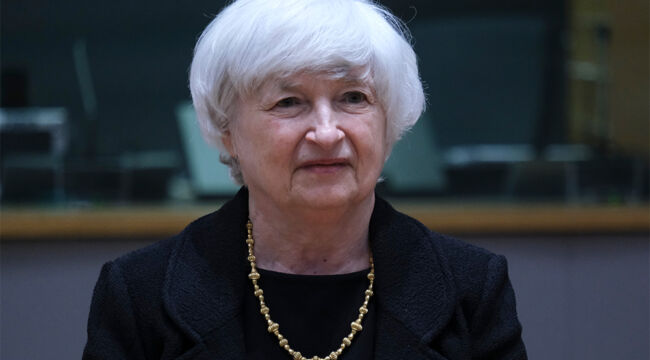Janet Yellen: Keynesian Egghead
“Old soldiers never die,” said Gen. Douglas MacArthur in his long-ago farewell address of April 1951. “They just fade away,” he added with a note of deep sadness.
I sure wish we could say that about Keynesian economists.
That is, about economists who follow the doctrines and dogmas of John Maynard Keynes (1883–1946), a British economist whose main works were published in the 1920s and ’30s and whose influence still steers the field of economics in the current world.
Because not only do old Keynesians never seem to die, neither do they even fade away. Indeed, on occasion old Keynesians become secretary of the Treasury, which is the case with Janet Yellen.
Here’s why I bring it up…
A while back I was organizing boxes in my basement. Inside one carton I found a collection of old Harvard student course catalogs from 1972 through 1978, the years when I studied geology there.
Coincidentally, those mid-1970s years also cover a time when a much younger Janet Yellen was on the economics faculty at Harvard.
In 1971 Yellen earned a Ph.D. in economics from Yale University. Her thesis was entitled Employment, Output and Capital Accumulation in an Open Economy: A Disequilibrium Approach, prepared under the supervision of Nobel laureates James Tobin and Joseph Stiglitz.
Then with new her newly issued New Haven degree in hand, Yellen migrated north to Cambridge, and went on payroll as an assistant professor of economics at Harvard, 1971–76.
It’s fair to say that Yellen rubbed elbows with quite a distinguished group of Harvard colleagues, back then. While paging through the old tomes, I saw familiar names of long-ago professors from whom I took an economics course or two — Otto Eckstein, Kenneth Arrow, Robert Dorfman, Wassily Leontief.
And then there was Janet Yellen, assistant professor of economics, with her bright, shining future still to come.
In 1972–73, Yellen taught a course in Aggregative Economic Policy. This covered “theories of national income determination, employment, interest, investment, money and economic growth from Keynes to the present.”
In 1973–74, Yellen taught that course again, with the same name except the course description changed to “Keynesian and post-Keynesian theories of national income determination, introduction to monetary theory, cyclical fluctuations and economic growth.”
A year later, in 1975 after a leave of absence, Yellen taught courses entitled Macroeconomic
Theory and Economic Theory.
The first course covered “Keynesian and classical models of employment and income determination; theories of inflation, aggregate fluctuations and growth; principles of stabilization policy; theories of consumption, investment and portfolio choice.”
The second course in 1975 covered “Static Keynesian models and their classical antecedents; modern monetarist and post-Keynesian models; theories of consumption, investment and portfolio behavior; theories of aggregate fluctuation and inflation; economic models and policy optimization.”
Yes, it’s all quite a mouthful. And do you notice anything about Yellen’s choice of titles and subject matter? I mean, aside from her extensive use of deep-insider academic jargon that almost no mere mortal can begin to fathom.
Exactly: Everything is all about Keynes!
In essence, back when Yellen was fresh out of Yale she taught party-line, orthodox Keynesian economics. And what was that?
Well, Keynesian economists believe that private-sector economic decisions often lead to what they perceive as “inefficient” macroeconomic outcomes. That is, an economy typically just does not do what central bankers and government planners want it to do.
And this lack of efficiency is a very bad thing in their collective mind.
When viewed through a Keynesian economic prism, people don’t behave properly. Their
cumulative, microeconomic sins all add up to grave policy faults and macro-inefficiencies.
Thus, according to Keynes and his acolytes, something must happen to correct the problems.
And what might that be?



Comments: